Staff Inquiry: Our Favorite Cinema Moments Of 2018

Alex is a film addict, TV aficionado, and book lover.…
2018 is coming to an end, and as everyone reminisces about the year gone by, we here at Film Inquiry can’t help but look back on the year in cinema. Our favorite films are coming soon, but first we wanted to get more granular with our favorite cinema moments of the year. These were individual scenes or larger sequences that stood out from the pack, lingering in our minds and at times defining the films they were in. That’s not to say they’re all from great movies; we all know the pieces sometimes exceed the whole. These are simply individual moments of greatness, and in their smaller scale, they perhaps come closer to achieving perfection than an entire film could ever do.
Levi Aluede – The Dance in Burning
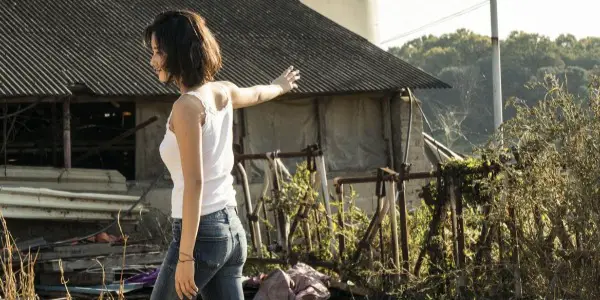
Ethereal, enigmatic and esoteric, there are many components of Lee Chang-Dong’s Burning that make it such a compelling piece of modern cinema. Its unpredictable screenplay, heavy with masculine uncertainty and economic frustration – is kindly presented in the form of Steven Yeun’s mysterious Ben and Yoo Ah-In’s soft-spoken Lee Jong-Su. When the trio of characters decide to have a joint outside Jong-Su’s home, Ben turns up Miles Davis’ score for Elevator To The Gallows and something unexpected happens. Hae-mi, the girl the two young men have been pining over, falls into a dance. She sways her arms to Davis’ unapologetically classic rhythm, silhouetted by a purple sunset and a South Korean flag, playing uninterrupted for what feels like a lifetime. Like Ben admits later, we feel ecstatic, ‘a base rings to our very bones.’
Lee Chang Dong manages to articulate through the language of cinema something impossible to distill into words, everything we’ve felt and everything we’re going to feel, in one surreal moment, that’s really not that surreal at all. Considering where the story goes from here, this moment plays in our heads like a fever dream, a moment that caught us off guard and slipped into our subconscious. As Jong-Su’s list of questions for Ben begin to pile up, the scene’s importance does, too. Finally, when none of our questions are answered, Hae-mi’s final expression becomes an immortal imprint in our minds. Something happened here, we all felt it, but it’s impossible to describe what it was. Like many scenes in film history, it’s pure cinema. It may come to define a generation of young filmmakers – perfect pacing and colourful cinematography, empowered simply by its position in the film’s narrative structure. Lee Chang-Dong’s directing prowess simply overwhelms us; it’s elusive, and it’s eternal.
Rob Caiati – Celeste’s Finale Concert in Vox Lux
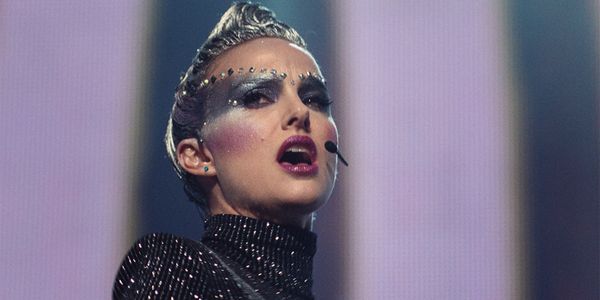
Just about everything in Brady Corbet’s provocative character study of a school shooting victim’s rise to fame is memorable, but nothing wowed me the way Celeste’s (Natalie Portman) onstage concert performance did. After a magnetically alluring story that cross-pollinates themes of mass violence with the worldwide influence of a mainstream popstar, we are finally shown what worldwide sensation Celeste’s music is all about. It is a punch to the gut to learn that the music that resonates so strongly with fans is completely devoid of meaning. From the overproduction of the vocals, the abundance of lyrical platitudes, and the garish costumes, it is confirmed that Celeste’s lack of substance in her musical work has created more confusion for her throngs of fans and may have even ironically inspired further acts of violence.
Portman is at her very best here, as her commanding dance movements on stage are riveting and is utterly convincing as a mega popstar. Real-life superstar Sia’s involvement is also extraordinarily commendable, as she has boldly crafted a series of songs that were clearly intended to condemn the very genre of music she has carved out a career from. This is all goes without mentioning the chilling final narrative reveal, which if taken literally makes you reexamine everything you’ve just witnessed in an entirely new, ominously sinister light. Who would have thought the most horrifying scene of 2018 would be a vapid mainstream pop performance without an iota of blood or gore?
Zoe Crombie – Charlie’s Death in Hereditary
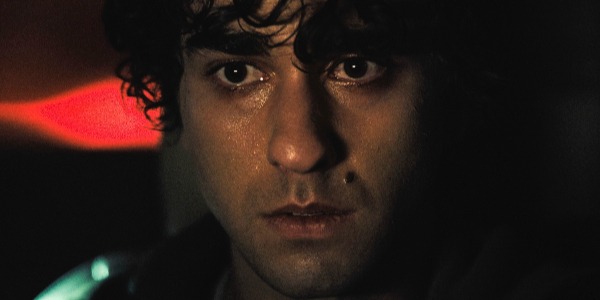
When watched at the cinema, most horror movies have the capacity to make us jump. This isn’t exactly hard to achieve – all you need is a loud enough noise in a dark and quiet room to set off the audience’s primal fight-or-flight instincts. Hereditary didn’t make me jump once, and yet I don’t think I’ve ever felt more disconcerted and shaken coming out of a screening. This is almost entirely due to one scene, the images from which are now burned into my brain forever: Charlie’s accidental death at the hands of her terrified brother.
Compared to any other horror movie I can think of, even those considered unconventional by the standards of the genre, this death scene is the most drawn out I have ever seen. From the initial shocking impact of her head against the pole, we are treated to the same nauseating feeling that we can see plastered across Alex Wolff’s face. This is drawn out almost to the breaking point as he slowly makes his way home, never truly acknowledging the brutal extent of the damage. It’s only released when his mother makes her way to the car and sees her daughter’s familiar outfit without a head.
The last shot is one that hasn’t left me since. Charlie’s expressionless face, now crawling with ants, lying on the side of the road as Toni Collette wails over the loss of her youngest child. It’s rare when the death of children in horror is done graphically, and it’s even rarer when it has emotional stakes beyond shock value. Here I was overwhelmed with grief for a girl I’d known for half an hour, and if that doesn’t demonstrate the power of film, I don’t know what can.
Patrick Crossen – The Bear Scene in Annihilation
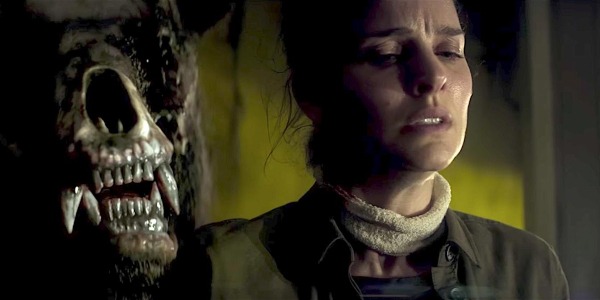
There’s an episode in season one of Buffy The Vampire Slayer in which a group of kids are cursed to become werehyenas. It’s a pretty ridiculous episode, but we learn about an old superstition that hyenas can learn people’s names and call to them at night to coax unsuspecting travelers into their jaws. There’s a pervasive fear in being lied to, in being lured. This fear oozes through what I deem the definitive “bear scene” in cinema (sorry, The Revenant).
The disarray drips like the slow trickling blood down the maw of a predator. It’s slow at first, as we only hear the guttural screams of Cass, a fallen member of the scientists. It’s a glimmer of hope in a bleak situation, and the one-sided lighting in the dark room reflects that in such a way that you feel you’re fully immersed in indecision. The door opens, and the shadow of a creature reminds us of that classic shot of Nosferatu gliding up the stairs. It must be a bear, what else has that outline?
Our expectations are subverted as the bear comes into the one-sided light and we see half of the creature’s face has been eviscerated, exposing blood and bone. Again, this one-sided element adds to our jarring sense of disorder. The creature opens its mouth and we hear, ever so softly, the scream of Cass. It slowly circles, sharking the tied-up women. All is calm. And then all hell breaks loose as the most visceral killing scene of the movie takes place. Gina Rodríguez’s harsh, frantic screaming is silenced as the bear rips open her face, making her a half-exposed body as well. Tessa Thompson’s Josie buries the creature in bullets and the scene is over in a flash. If it were written on sheet music the scene would be crescendo, fortissimo, tacet. There’s no slow descent back to reality. Before we can figure out what in the hell is going on, it’s over.
David Fontana – The Horse Training Scene in The Rider
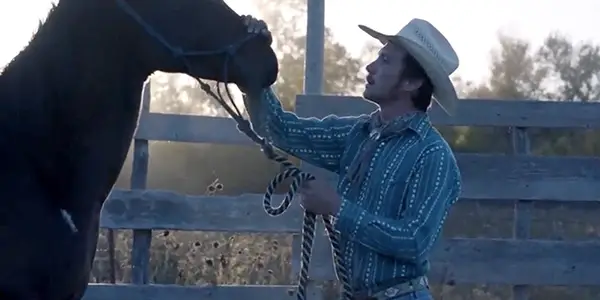
Chloé Zhao captured something truly wonderful in her indie Western The Rider. Based on a rodeo rider named Brady Jandreau, and played by the man himself, it tells the story of his life after he had suffered from a serious injury while engaging in the sport. Told by doctors that he can never participate in rodeos again, Brady is determined to get back on the horse, starting up training sessions with a new horse that he purchases from a friend.
During the scene that follows, in which Brady coalesces and soothes a bucking horse into one he can ride with ease, you can truly see not only the abilities of Brady as a rider, but also his calm and sympathetic demeanor, which makes him inherently likable as our protagonist. His training session, which is shown progressively over the course of many hours and cast in the beautiful minimally-lit waning hours of the day, also seems to say much more about Brady during the process.
What follows from this scene is the eventual realization that perhaps Brady will never engage in the sport again. But what he needed, above all, was not the realization that he couldn’t participate; it was the understanding that, perhaps he doesn’t need to after all. Like the horse itself, it’s his inner frustrations, not his physical self, that needed amending, and it’s through this pertinent scene of Chloé Zhao‘s wonderfully resonant film that he first begins to realize this.
Arlin Golden – Baby Marathon in Hale County This Morning, This Evening
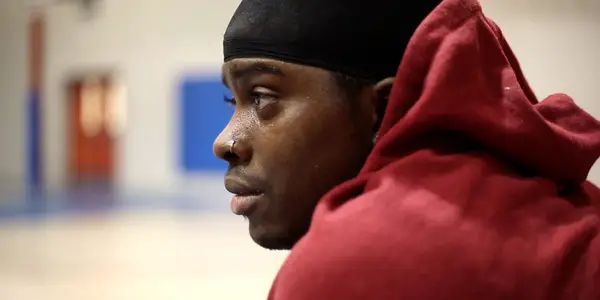
It’s easily one of cinema’s greatest entrances. The camera pans up from a stuffed animal lying on the floor. Back and forth, back and forth. “What doin’? What doin’?” And back. And forth. Tired. Rest. No, not done, can’t stop, won’t stop, more back, more forth. 2018’s most memorable, entrancing, and all around enjoyable scene was owned by just one baby. One baby with a seemingly endless well of kinetic energy, maybe even more than his tiny legs are able to process.
Kyrie Bryant’s living room marathon is perhaps the most jubilant sequence in Hale County This Morning, This Evening, a film that covers a wide spectrum of human emotion and experience. Hale County is comprised of many small but impactful moments, some lasting as little as a few seconds, so that this scene is one of the film’s longest continuous takes inherently makes it stand out.
Ostensibly two and a half minutes of a baby doing his best impression of Joaquin Phoenix in The Master, behind the sequence’s simple pleasures lies a microcosm for the film as a whole. Young Kyrie wears a clear expression of determination, personifying the ceaseless momentum of life experienced by its main subjects, Daniel Collins and Quincy Bryant (Kyrie’s father). Kyrie also gifts the film one of its defining moments of self-reflexivity, grabbing director RaMell Ross’s camera and peering through the lens directly to the viewer, short of breath and simply imparting “I go” before letting out an enthusiastic yell as the score swells. He laughs, he falls, then continues his epic single room sojourn.
Shot with an exceptional eye, the long take carries with it an inherent tension; “when will he stop?”, referring to both the filmmaker and his diminutive star. Ultimately, the latter outlasts the former. I don’t know that I’ve ever been so moved by such simplicity.
Amanda Mazzillo – Everything Jesse Plemons in Game Night
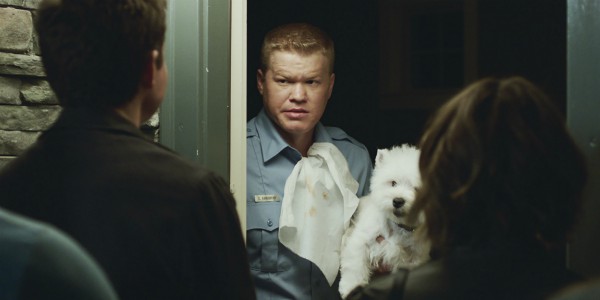
The films of 2018 included many wonderful and memorable moments, but my favorite moment has to be Jesse Plemons‘ scenes in Game Night as Gary. The mixture of awkward comedy done in an almost horror villain style captivated me. Even from the trailer, I knew these moments would land with me, but they turned out to be some of the funniest moments of the year for me, and maybe even the funniest moments I’ve seen in the last few years.
Jesse Plemons perfectly captured the loneliness of Gary through deliveries that both made me laugh and feel slightly scared by the character and his twisted and awkward quest for friendship. Something about this performance stood out to me and has stuck with me throughout the year. Jesse Plemons pulled me in with this performance and kept me laughing while wondering just how his character fit into the rest of the story.
Game Night is a delightful comedy all around, and Jesse Plemons’ performance gave it that strange and dark edge it needed to remain present in my mind throughout the year. The film was filled with wonderful performances, and has made me more excited for the future work these cast members have in store.
Nathan Osborne – Super Trouper in Mamma Mia! Here We Go Again
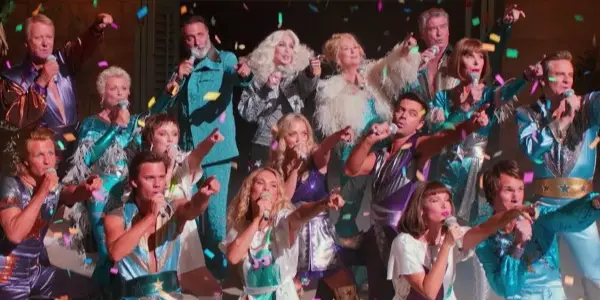
A celebratory curtain call that bends the rules of time and physics (and doesn’t bat an eyelid in the process). An explosion of everything bright, loud and sparkly that this world has to offer. A self-indulgent whirlwind that pushes the notion of “giving the audience exactly what they want” to extremes. The mid-credit Super Trouper performance from this year’s feel-good hit Mamma Mia! Here We Go Again ends the musical experience on a show-stopping note with more confetti, glitter, and lyrca than stomachable in any other setting. But this is a Mamma Mia sequel – one fans of the 2008 original film, not to mention the 1999 stage production, have been waiting more than ten years for – so anything goes.
As past and present iterations of the same characters dance side by side, singing a rather sombre song with such joy, everything seems okay in the world. For those short four minutes, in which the likes of Cher, Meryl Streep, Lily James, and Amanda Seyfried assemble to entertain the Hotel Bella Donna guests – and cinema audiences across the world – there is a burst of unadulterated happiness that guarantees audiences leave on a high. Gorgeously contrasted against such a heartbreaking penultimate scene, My Love, My Life (which, itself, almost got my vote here), the everything-but-the-kitchen-sink finale leaves you floating on cloud nine with a spring in your step and a song in your heart. Of course, it won’t be for everyone, but for those won over by the series’ charm, Super Trouper will be the cherry on top of the delicious cake that is this superior sequel. Director Ol Parker and producer Judy Craymer worked utter magic with this movie and its final sequence, a commemoration of everything the film stands for and a well-deserved victory lap. Hand on heart, I’ve never felt jubilation like it.
By the time the very final lineup greets our eyes, every star crammed into frame and all but drowning in confetti and smoke, the Super Trouper performance cements itself as the crossover event of the year. Sure, we had Avengers: Infinity War in 2018 – but a star-studded cast singing ABBA’s best song in a complete, unashamed bubble of happiness is the light this dark, scary world needed.
Alistair Ryder – Magical Mystery Tour in First Reformed
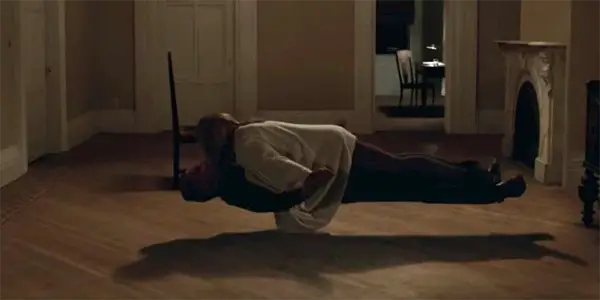
Paul Schrader’s return to form may include numerous nods to Bergman’s Winter Light and Bresson’s Diary of a Country Priest, but these weighty influences feel somewhat lightweight in comparison to the best moments in First Reformed. In the film’s defining sequence, he manages to illustrate the central conflict within the mind of his protagonist, Reverend Ernst Toller (a career best performance from Ethan Hawke), in a manner that transcends us to the heavens before bringing us crashing down to earth to face our most inescapable, existential concern.
It begins with an innocent, borderline quirky, conceit; Toller is visiting Mary (Amanda Seyfried), a woman who initially visited the reverend seeking counselling for her husband, Michael (Phillip Ettinger), who had fallen into a heightened depression because of his radical environmentalist beliefs. Mary and Toller grew closer from this, and on one of their meetings, she confesses about one of her pastimes with her husband, dubbed the magical mystery tour. Simply, they’d lie on top of one another whilst fully clothed, listening to the sounds of each other breathing. Toller volunteers himself to take part – and for a brief moment, the stripped-down character drama becomes something far more grandiose.
Toller is becoming increasingly conflicted after meeting with Michael, with his devotion to his faith compromised by his own increased belief in environmentalist theories, and nowhere is this better conveyed than here. It’s not exactly subtle, but that’s precisely why it’s so powerful; images of the natural world, with Toller and Mary lying amidst it, replaced by the despair of the damage we are causing to it (quite pointedly, Schrader removes the pair from the screen as the images take a darker turn). It’s not the sort of moment that needs to be written in-depth about; the thesis is clear and presented without any semblance of subtlety. But in Schrader’s hands, it feels profound and devastating – the implosion of our planet feeling all the more distressing when directly connected to the plights of two lost souls. No other scene this year has managed to get close to having a similar impact on me.
Linsey Satterthwaite – Cheddar Goblin in Mandy
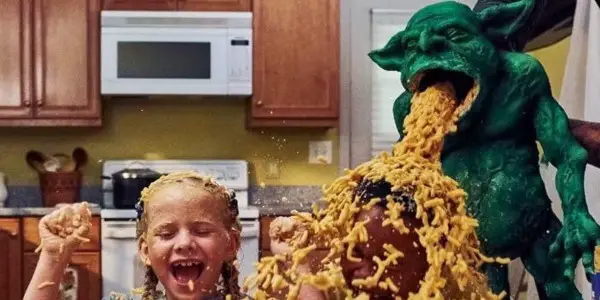
There are many scenes in Mandy, Panos Cosmotos’ mind melting revenge opus, that could qualify for film moment of the year, as it is such a visual assault on your retinas. But the scene that stuck in my mind was an advert for a fictional brand of macaroni called Cheddar Goblin, which featured a menacing green creature. The sequence sends up the wholesome family ads that you would have seen within the film’s ’80s period setting and features the goblin vomiting macaroni on its all-American child stars. It is a moment so surreal and striking that it perfectly eases the intense hypnotic spell that the film has created, offering a temporary comedic and absurd pause.
After witnessing a horrific act on his girlfriend, Nicolas Cage’s lumberjack Red stumbles into his home, unable to adjust to the brutal carnage that has engulfed his woodland sanctum. As he stands there, the Cheddar Goblin advert appears, like a surreal dream leaving him rendered motionless for a moment and leaving the audience brilliantly baffled. For a film that is jam-packed with bizarre moments, this scene still manages to surprise and almost out-Cages Nicolas Cage. You can already see future midnight screenings of Mandy where people will come wearing Cheddar Goblin t-shirts and cheering their hearts out at 2018’s unlikeliest breakout hero. A (cult) star is born.
Kristy Strouse – The Shining Sequence in Ready Player One
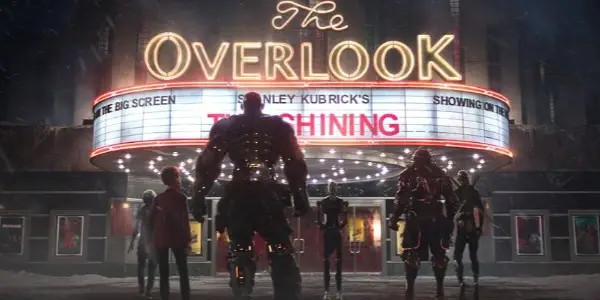
It isn’t easy to say for sure what my favorite film moment of 2018 is, especially since there were so many incredible films. In deciding, I went back and forth, eventually landing somewhere between Avengers: Infinity War and Hereditary. I didn’t choose my favorite or the best film, but merely a moment that stood out.
Steven Spielberg’s Ready Player One (which was far more fun than I expected) had lots of issues, but it was also entertaining and had one particular scene that I loved: The Shining sequence. The whole film is one big pop culture love letter, so it’s not surprising that they touch on a film inspired by a Stephen King novel. And yes, they make a comment about how King hated the film.
Without diving into the plotline of Ready Player One, I’ll just say that Wade Watts, (Tye Sheridan) and his friends enter the second challenge to find a very familiar horror setup. Though, not all of his friends know this particular tale and therefore miss the embedded warnings that other fans would notice.
Right from the beginning we are given the telltale, spine-tingling score of The Shining, which adds to the overall environment. There are also shots taken directly from the original film. He takes care with details and ensures that all the iconic pieces are included, such as the creepy sisters, the elevator of blood, the snow-covered maze, and of course, room 237. Spielberg wonderfully recreates the hotel, and to watch someone who doesn’t know what to expect, is also quite hilarious. Mostly though, it’s just damn cool.
For me it was a fusion of nostalgia and an ode to one of the best horror movies ever made. How could it not be my choice?
Jake Tropila – Car Scene in Hereditary
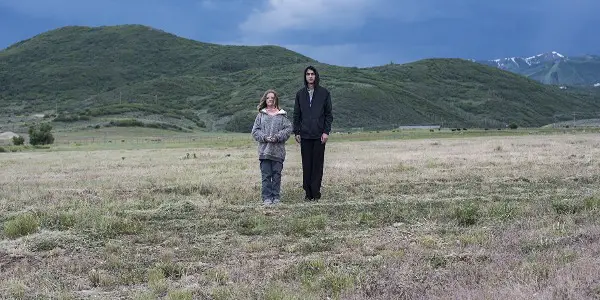
The power of genre cinema can be a beautiful thing. Ari Aster’s debut film, Hereditary, came out of nowhere, raising hell in movie theatres and earning scores of accolades, namely for Toni Collette’s bravura performance. It also proved to be a heavily divisive picture, with many arguing as to whether or not the film actually “works.” Whatever your thoughts may be, there’s no denying that there is one sequence that is executed perfectly. If you’ve seen the film, you know which one I’m referring to (some spoilers ahead).
Approximately thirty minutes into the film, 13-year old Charlie (Milly Shapiro) has been forced to accompany older brother, Peter (Alex Wolff), to a high school party. While Peter gets high, Charlie begins suffering from a peanut allergy, necessitating a hasty exit for the two of them. While en route to the hospital, a series of Rube Goldberg-like mechanics (a rolled-down window, an ill-timed swerve, and a telephone pole) result in one of the most shocking moments of the year: Charlie’s head gets knocked clean off her shoulders, leaving poor Peter to sit in silence as he stews in the gravity of the situation.
What’s memorable about this sequence is not how well Aster pulls it off (though it is done magnificently), but the profound effect it had on the audience I was with. The entire auditorium let out a collective gasp and was stunned into the same silence Peter was, unable to move for fear of what’ll happen next. I can’t recall the last time I’ve seen a new horror movie do that. It’s a shame the scene arrives so soon; Hereditary shows immense promise early on, and while I don’t think it sticks the landing, I will happily see whatever Aster does next.
Emily Wheeler – Jobs Montage in Wildlife
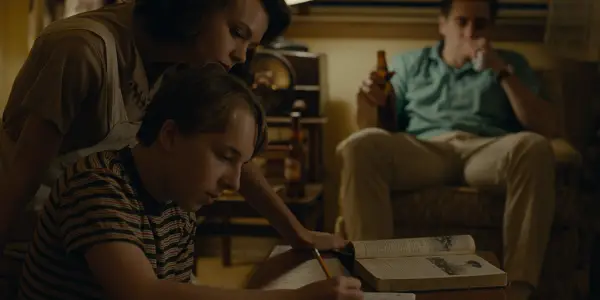
The crumbling family in Wildlife is done in by the most mundane problem: money. They aren’t the most stable unit to begin with, but about twenty minutes into the film a montage highlights just how doomed they are.
When Jake Gyllenhaal‘s Jerry loses his job, the exacerbated reaction of his wife, Carey Mulligan’s Jeanette, lets you know they have no safety net financially. However, instead of stepping up to the occasion, Jerry spirals into a depressive lethargy. That’s when Jeanette takes a radical step for the early 1960s: she gets a job and prods their son, Ed Oxenbould’s Joe, to do the same.
This is where the montage beings, showing each member of the family in radically different places. Jerry is chewing on his failure during long, solo drives, Jeanette is reveling in earning her own keep, and Joe is taking his first wide-eyed steps into the workforce. The montage crushes all of this together, and in doing so, highlights the diverging paths they are on. The audience already knew their bond was tenuous, and the certainty of their split is crystallized in these moments. It hits like a crushing blow, a far cry from the happier cinema moments of the year, but one that epitomizes the devastation of lifelong bonds being broken.
Bethany Wilson – Rooftop Release in Support the Girls

It’s near impossible to pick a favorite film moment of 2018 since there are so many gems to choose from. My number one pick would have to be the ending of Andrew Bujalski’s Support the Girls. Making me feel reminiscent of 2017’s The Florida Project, this film is already one of the purest, most underrated of the year. The girls in this film go through hell and back and finally come to some sort of peace at the end. Three of the women head up to the rooftop of the restaurant they previously worked at and they all start screaming together “EVERYTHING IS GONNA BE OKAY!”.
This is a pivotal moment because after all they had dealt with and went through, in that moment in time you could tell that they truly felt everything was going to be okay. On the rooftop, these three women talk about their lives and the world, all while the deafening sounds of highway traffic pass them by. Lisa (Regina Hall), Maci (Haley Lu Richardson) and Danyelle (Shayna McHayle) scream at nobody and nothing in particular. Their screams are piercing. And then it fades to black.
Sometimes all you need is someone close to you to tell you that everything will be fine and that you have to find the light at the end of the tunnel. You have your friends and your family by your side and for a moment, the negativity disappears. This film has the best way of simultaneously warming your heart and making you cry laughing. It’s a film overflowing with love, sympathy and humanity. In my opinion this is not only one of the greatest films of the year, but one I will cherish for a long time. I love and support these girls!
Tynan Yanaga – Ending of First Reformed
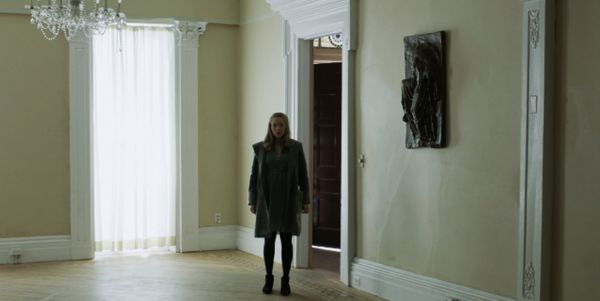
In Paul Schrader’s Transcendental Style in Film – a near sacred text for some cinephiles – he begins to reconcile his own upbringing in deeply Calvinist circles with his love of cinema. In his words, filmmakers like Ozu, Bresson, and Dreyer strive toward “the ineffable and the invisible.”
Likewise, First Reformed feels like the culmination of his own ardently religious past and the disaffected malaise that concurrently brought us Taxi Driver. Nowhere is this more plainly evident than the final moments of the film, where we have an Ordet-esque apotheosis married with the inscrutability of Travis Bickle’s closing visions.
The key is how reality and the illusory world begin to overlap and ultimately become indecipherable. Because Reverend Toller (Ethan Hawke) is about to down the cup of wrath that will end his life, but an instant later he is in the arms of a nearly angelic creature (Amanda Seyfried) as they kiss passionately. Borrowing from the likes of Winter Light and Diary of a Country Priest, up to this point, First Reformed is an unembellished drama. The underlying isolation of our main character is punctuated by a visual asceticism and the fact that he never shares human contact with anyone.
Yet in this final “revelation” he bursts forth into rapturous paradise. Maybe… Is this really resurrected life or a vision of death, actual earthly redemption or merely carnal lust? The conclusions derived are diverse and Schrader has allowed for the uncertainty because it is often paradoxes that lead to truth, or at the very least, force us to ask difficult questions. Sometimes the answers come and sometimes not. As the film expresses in a fitting footnote, “Wisdom is holding two contradictory truths in our mind simultaneously – Hope and despair. Holding these two ideas in our head is life itself.”
Those are our favorite moments of the year. What are yours?
Does content like this matter to you?
Become a Member and support film journalism. Unlock access to all of Film Inquiry`s great articles. Join a community of like-minded readers who are passionate about cinema - get access to our private members Network, give back to independent filmmakers, and more.
Alex is a film addict, TV aficionado, and book lover. He's perfecting his cat dad energy.













